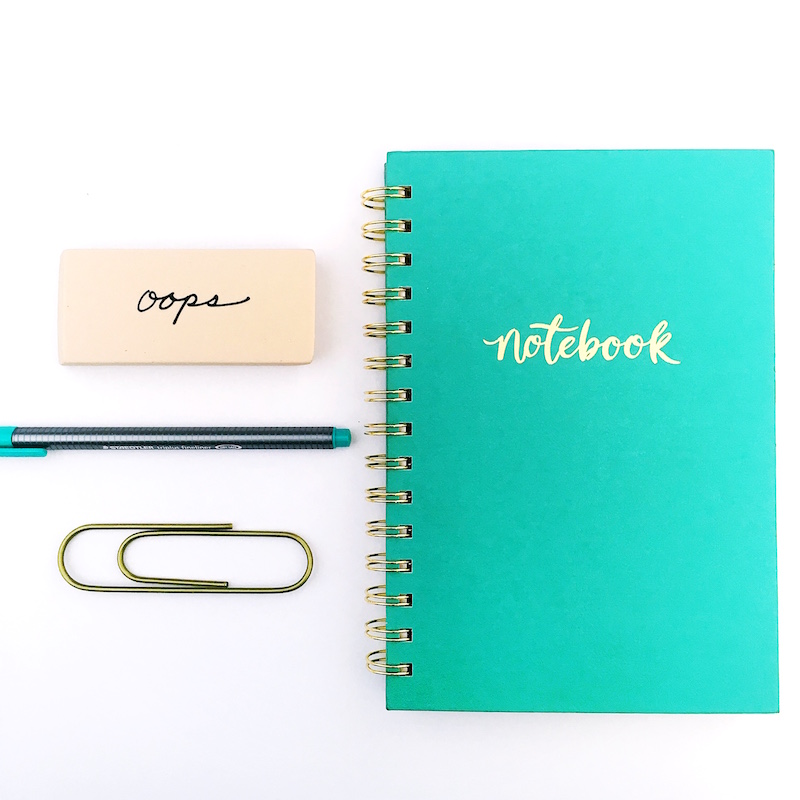Figuring Out Who to Pitch as a Freelance Writer
Mar 13, 2017
This is part one of a four-part series on pitching as a freelance writer. For an overview of the series and easy access to every other post, click here.
To grow your business as a freelance writer, you’re going to need to be a little aggressive. Take it from me: Sitting around and waiting for clients to suddenly fall into your lap is a surefire way to end up frustrated and discouraged. Instead, you need to be prepared to put yourself out there and sell yourself.
This is exactly where your pitch comes into play. It’s your chance to be proactive, get in touch with that publication or brand, make a positive impression, and demonstrate why they should want to work with you as a writer—whether it’s for a one-off article or as a regular contributor.
Who should you pitch as a #freelancewriter? Here's what you need to know: Click To TweetSounds great, right? But, here’s a question I see crop up from a lot of newbie freelancers: Who do you pitch? How can you find places to send your materials?
Well, my friends, that’s exactly what we’re covering in today’s post. Let’s roll up our sleeves and get into it, shall we?
Who to Pitch: Determining Your Niche
You don’t even need to spend a few minutes looking around the web to know this: There’s content out there about pretty much everything. From sports cars to medical devices to pet care to app development, there’s a seemingly endless amount of outlets that cover various topics—most of which require content.
As a freelance writer, this is good news for you. It means there’s plenty of opportunity out there!
But, it also means that figuring out where to focus your time and attention can feel overwhelming. And, if you fall into that common freelance trap (one that I fell into myself far too many times when I was getting started!) of pitching yourself to any and every place you think will pay you a quick buck, you’re going to end up with a sporadic and unfocused portfolio—which makes it that much tougher to land quality, high-paying gigs in areas that actually interest you.
Whew! That was a lot. But, here’s the important thing you need to remember: When figuring out who you should pitch as a freelance writer, the first thing you should do is determine your niche. What topic will you specialize in? What industry or area do you want to focus on?
For example, the majority of the content I write falls underneath the career and self-development advice umbrella. Even this very blog fits that criteria (am I an over-achiever, or what?).
Admittedly, I didn’t always have this niche. In the early days of my freelance career, I wrote about everything from storage unit insurance to how fish finders work (I wish I was kidding, but I promise I’m not).
So, career advice is sort of a niche that fell into my lap—but, I’m glad it did. Not only did it help me to establish myself as a subject matter expert, but it also makes finding places to pitch so, so, so much easier.
Instead of feeling like every single website or publication is a viable writing option for me, I can better separate the wheat from the chaff and zone in on the sites that I’d not only enjoy writing for—but that I’d also have an easier time landing a gig with (because I have a relevant portfolio to showcase!).
I know it can seem counterintuitive to limit yourself, and I also know that it’s easy to think that you should cast a wide net when you’re just getting started. But, believe me when I tell you that refining your focus right from the get-go will be helpful.
Related Resources:
Freelance Writing Niche: Do You Really Need One?
How to Find Your Writing Niche
Got your niche and are ready to keep truckin’? Good. Now you can move onto the next step.

Avoiding Brain Burps: Keep a List
There’s nothing worse than sitting down at your computer feeling determined to reach out for some new prospective opportunities, yet having no idea where to start. You rack your brain trying to think of that website your friend recommended two weeks ago of that platform you stumbled upon on Twitter—but you’re comin’ up empty.
Want to avoid that? Of course you do. Fortunately, I have a simple and straightforward tip that will help you: Keep a list.
Gasp! I know, it seem so obvious it’s almost painful. But, hey, if you had thought of it yourself you wouldn’t have dealt with that frustrating “blank brain syndrome” you know all too well.
I’m an Evernote user, and I have a specific note (formatted as a checklist) called “Freelance Leads” in my phone. Anytime I stumble across a website, publication, brand, or platform that seems like it’d be a good fit for me, it gets added to the list. That way—even if I don’t have time to pitch them right at that moment (and, honestly, I usually don’t)—I know I have their name stored somewhere safe so I can come back to it in those moments when I’m focused solely on pitching and marketing my business.
Whenever I’m feeling extra lazy? I’ll take a screen shot of the website or Twitter profile, for example, and just drop it in my note. Easy peasy, right?
When you’re actively keeping your eyes peeled for freelance possibilities and then adding them to your list, you’ll likely be surprised by how many opportunities are out there that also fit within your niche. Some of the places I’ve spotted brands and publications that interest me include:
- Twitter: This is a big one! Because I write so much career content, another career outlet will mention me in a tweet or follow my account. If I like what I see? Onto my list they go!
- LinkedIn: Whenever someone connects with me, I make sure to take a look at where they work. If it’s a company that fits my niche? I head on over to their website to see if they have a blog. If they do, that’s a place I could potentially write!
- Existing Articles: Did you read an article related to your niche that you found fascinating? Well, there’s no reason you can’t pitch yourself to write for that very same outlet!
- Advertisements: Because I post so much stuff related to my niche on my social accounts, oftentimes the ads that are targeted to me are for companies or publications that are career-related. This also includes those “Who to Follow” recommendations you see on Twitter. If I see something that looks like a decent opportunity? It’s added to the list!
- Waiting Rooms: Wait, what? That’s right—rather than mindlessly scrolling through your phone while you’re waiting at the dentist or doctor’s office, flip through a few of the magazines that are stashed there. Despite what you may have heard, print isn’t dead. Plus, nearly every print publication also has an online edition you could write for!
Those are just a few places you could find potential opportunities—there are many, many more. But, it all starts with knowing your niche, keeping your eyes peeled, and then adding interesting leads to your list. That way, you’ll have an ever-growing roster of places you can pitch whenever you have some downtime.
Related Resources:
Freelance Writing Jobs: Where to Look and How to Land Them
My Favorite Places to Find Freelance Gigs

Can You Really Pitch This Place?
So, you’ve found a publication, platform, brand, website, or something else that piques your interest. If they have a spot on their website where you can learn more about submitting? Great! You just need to follow those instructions (more on how important those are in a future post!) and send in your stuff.
But, what if they don’t? In fact, what if their website doesn’t say anything that leads you to believe they’re looking for a freelance writer? Should you even bother sending your stuff in?
This is a question I hear from so many different people, and my answer is always this: ABSOLUTELY.
What’s the worst that can happen if you put yourself out there? They get back to you and say, “Thanks for reaching out, but we’re not looking for anyone right now!” If that happens, are you any worse off than you were before? Nope.
So, whether it’s a company blog or a tried and true publication, don’t hold yourself back from pitching just because they don’t explicitly ask for submissions from freelancers. That’s definitely not a prerequisite for putting yourself out there.
Related Resources:
How to Stay Motivated After Facing Rejection
Your Homework
There you have it—everything you need to know about finding places to pitch as a freelance writer. Now it’s time for you to put in a little elbow grease. So, here’s your homework for this week:
Find your niche (use the worksheet with this post!) and then start your list (I recommend keeping it in your phone, since you typically always have that with you!) of potential outlets. Aim to add at least ten relevant places to that list by the end of the week.
That way, you’ll be armed and ready for the topic we’ll tackle in the next post of this series: making the most of your freelance pitch.